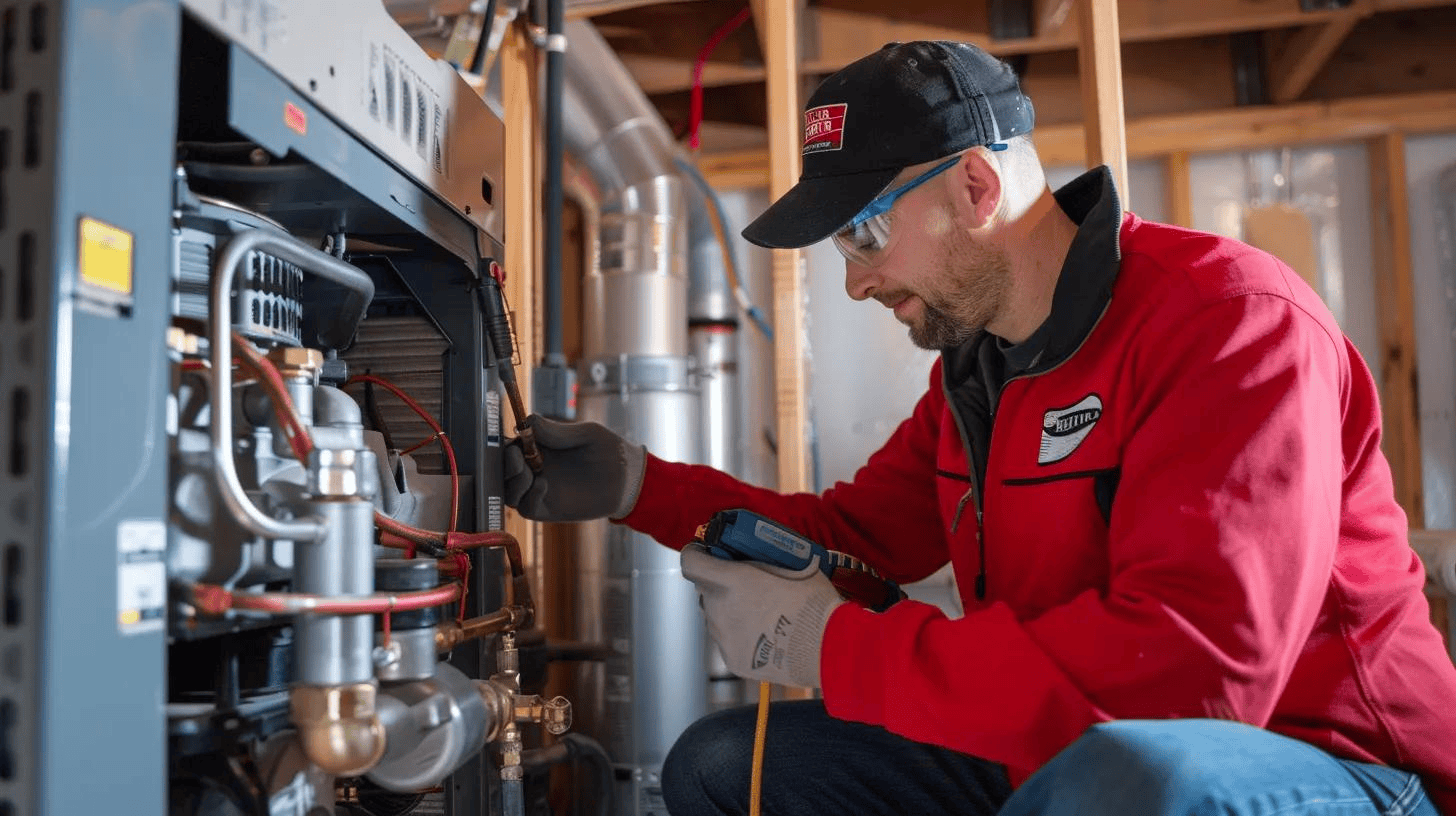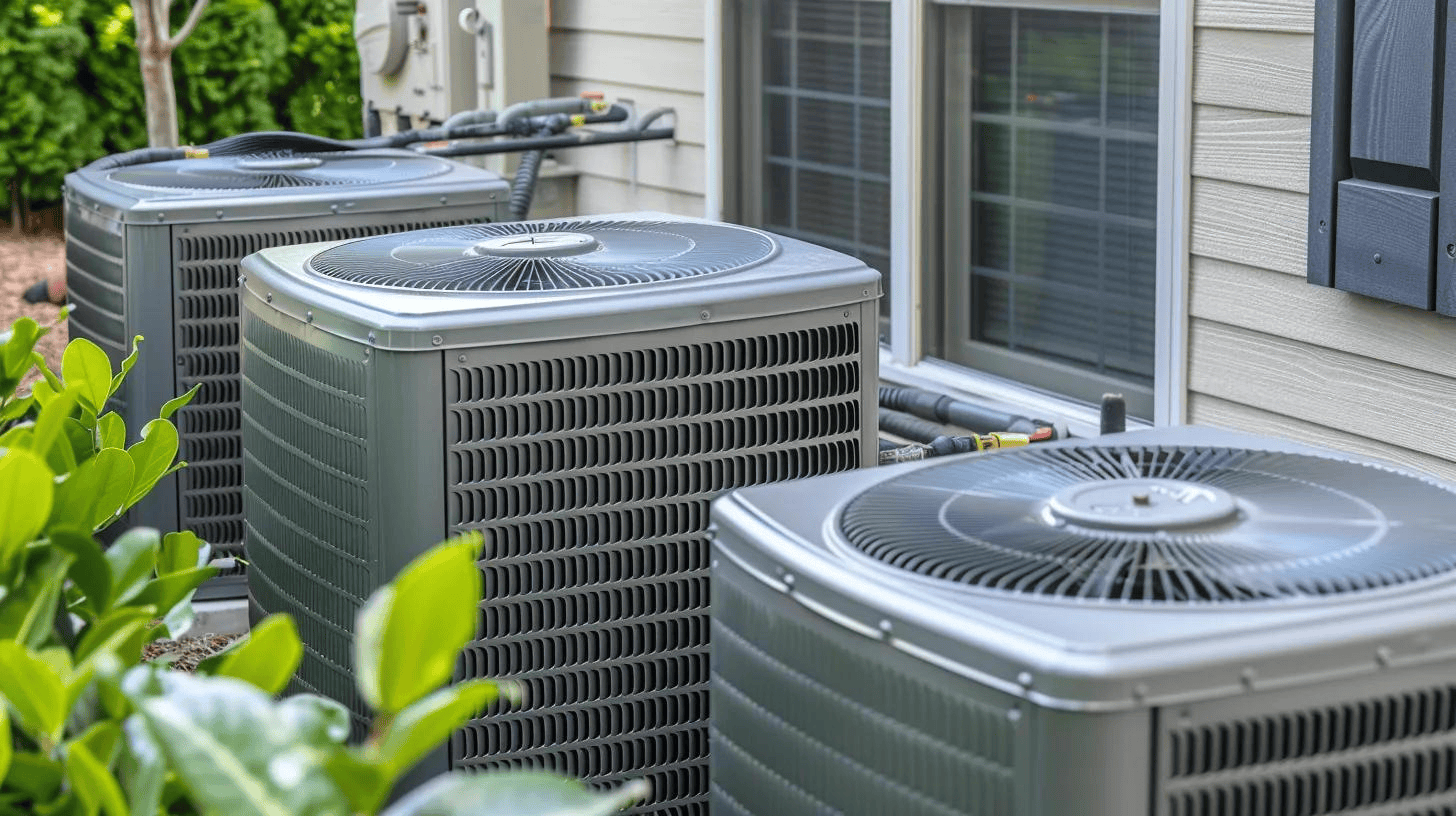-min.jpeg)
Is Your Utility's "Free" Smart Thermostat a Good Deal? An Honest Review
Let's be honest. When your utility company offers you a free Google Nest or Ecobee smart thermostat a device that costs hundreds of dollars at the store—the first question that pops into your head is probably, "What's the catch?"
It's a tempting offer. You get cutting-edge tech, the promise of lower energy bills, and a sleek new gadget on your wall, all for free. But you're right to be skeptical. You've probably wondered if you're trading a small upfront cost for a bigger loss of control over your own comfort.
So, is it a good deal?
The short answer is: Yes, it can be an excellent deal, but only if you understand the trade-offs and know how to stay in the driver's seat.
These programs are designed around a concept called "demand response," and by understanding how it works, you can get the free hardware and the energy savings without sacrificing comfort. This guide will walk you through exactly what you're signing up for, how to maximize the benefits, and how to choose the right tech to keep your home feeling just right.
Decoding "The Catch": How Demand Response Actually Works
When you accept that free thermostat, you're usually agreeing to enroll in your utility's "demand response" program
Think of the electrical grid like a highway system. On a scorching hot afternoon when everyone gets home from work and cranks up their AC, the highway gets jammed. Demand response is like a traffic management system for electricity. Instead of building more multi-billion dollar "lanes" (power plants) that sit unused 95% of the time, the utility company asks for a little help to ease congestion during those peak hours.
How does it affect you?
During a handful of "peak demand events" each summer typically on the hottest weekday afternoons the utility will send a signal to your thermostat to slightly reduce your AC's workload.
This is where the fear comes in: "Will they shut off my AC in the middle of a heatwave?"
The answer is almost always no. Instead of shutting it off, the system will adjust your setpoint by a few degrees, usually no more than 4°F. So if you have it set to 72°F, it might be adjusted to 75°F for a two or three-hour period. Because modern homes, especially those with a well-maintained HVAC system, retain temperature well, many people don't even notice this small, temporary change.
The Real Savings: A Data-Driven Look
Now for the important part: does this actually save you money? The data says yes, but it's important to have realistic expectations.
Let’s look at the numbers:
- ENERGY STAR certifies that a smart thermostat can save an average household about $50 per year on their energy bills.
- A study from the American Council for an Energy-Efficient Economy (ACEEE) found savings are often higher, averaging 8-12% on heating and up to 15% on cooling.
- The utility companies themselves often claim you can save up to $100 per year by participating in their programs, which includes both the general efficiency of the thermostat and bill credits for participating in demand response events.
The key takeaway is that the savings are real, but they aren't going to eliminate your energy bill. The "free" thermostat pays for itself within the first year or two, and from there, it's pure savings in your pocket.
The User Experience: What Reddit and App Reviews Reveal
Here’s where we address the elephant in the room. If you search for reviews of your utility's smart thermostat program, you'll likely find community forums on Reddit filled with mixed experiences and app store pages with shockingly low ratings. The "Smart Thermostat by NV Energy" app, for example, has a dismal 1.9 out of 5 stars on both the Apple and Google Play stores.
Users complain about clunky interfaces, a lack of control, and the system overriding their personal settings.
This is the real "catch," but it's one you can easily avoid. The problem isn't the Google Nest or Ecobee thermostat itself those are fantastic devices. The problem is the basic, often poorly designed utility app that comes with the program. The secret is to use the thermostat's own superior native app (the Google Home or Ecobee app) for your day-to-day control.
By using the manufacturer's app, you get a world-class user experience while still allowing the utility to make those small, infrequent adjustments in the background. You get the best of both worlds: the savings from the program and the powerful features and control of a premium smart thermostat.
Taking Back Control: Choosing the Right Thermostat for You
Sometimes the utility will offer you a choice between a few different thermostat models. While both are excellent, they have slightly different approaches that might suit your lifestyle better.
Google Nest Learning Thermostat
- Best for: The "set it and forget it" user.
- How it Works: Nest famously learns your schedule and preferences over the first couple of weeks. It programs itself to save energy when you're away and make sure you're comfortable when you're home. Its interface is incredibly simple and intuitive.
- Demand Response: Overriding a utility adjustment is as simple as walking over to the thermostat and turning the dial.
Ecobee Smart Thermostat
- Best for: Data nerds and those who want ultimate control.
- How it Works: Ecobee uses remote sensors you can place in different rooms to ensure your comfort isn't just based on the hallway temperature. This is great for homes with hot or cold spots. It gives you incredibly detailed usage reports and more granular control over settings.
- Demand Response: Ecobee's app is very clear about when a demand response event is happening and makes it easy to opt-out of a single event if you're having people over or just need the extra cooling.
The choice is personal, but either option is a massive upgrade over a non-programmable thermostat. And ensuring it's installed correctly is key to its performance, so consider a professional installation to make sure everything is calibrated perfectly from day one.
The Pro Setup Guide: Balancing Savings and Comfort
Once your new thermostat is on the wall, a few simple setup strategies can ensure you get maximum savings without ever feeling like you've lost control.
- "Pre-Cool" Your Home: This is the single best trick for sailing through a demand response event. If you know an event typically happens between 3-6 PM, set your schedule to cool the house an extra degree or two around 2 PM. Your home will act like a thermal battery, staying comfortable for hours even as the AC runs less.
- Use the Native App: As we covered, download and use the Google Home or Ecobee app for all your scheduling and adjustments. It's a far better experience than the utility's version.
- Lean on Smart Features: Let the thermostat do the work! Enable geofencing so it knows when you leave and come home. Let it learn your schedule. These features save far more energy day-to-day than the handful of demand response events ever will.
- Know Your Override: Familiarize yourself with how to opt-out of an event. On both Nest and Ecobee, simply adjusting the temperature on the device or in the app will override the utility's setting for that event, putting you back in full control.
The Final Verdict: Is a Utility Smart Thermostat Program Right for You?
After weighing the evidence, the conclusion is clear.
These programs are a fantastic deal for most homeowners. You get a high-end piece of technology for free that will reliably save you money and reduce strain on the power grid. The "catch" a minor, temporary loss of precise control a few times a year is easily managed and, for many, completely unnoticeable.
- It's perfect for you if: You're still using an old manual or non-programmable thermostat. The energy savings from the smart features alone will be a huge benefit, and the demand response program is just a bonus.
- You might think twice if: You work from home and are highly sensitive to temperature changes, or if you absolutely must have 100% control, 100% of the time. In that case, buying a smart thermostat yourself without enrolling in the program might be the better path.
Ultimately, these programs empower you with technology that makes your home smarter, more efficient, and more comfortable. By understanding the system, you can confidently accept that free thermostat and enjoy all the benefits with none of the drawbacks.
Frequently Asked Questions
Can the utility company completely shut off my AC or heat?
No. Reputable demand response programs will only ever adjust your thermostat by a few degrees. They will not turn your system off completely. The goal is to reduce load, not leave you without heating or cooling.
Can I opt-out of a demand response event?
Yes. All programs allow you to override the adjustment at any time. Simply changing the temperature on your thermostat or in its native app will immediately give you back manual control for the duration of that specific event.
What if I already own a smart thermostat? Can I still get a rebate?
Often, yes! Most utility companies offer a one-time enrollment bonus or an annual bill credit for customers who already own a compatible smart thermostat and enroll it in their demand response program. Check your local utility's website for details.
What happens to my data? Is my privacy protected?
Thermostat manufacturers and utility companies have stringent privacy policies. The data shared is typically aggregated and anonymized, focusing on energy consumption patterns rather than your personal habits. It's used to manage grid load, not to monitor your activity. If you have specific concerns, it's always a good idea to get expert advice from a trusted HVAC professional who can clarify how these systems work.
Customer Testimonials
.webp)
Buy Today, Pay Over Time
Wisetack - 0% APR up to 24 months (on approved credit)










